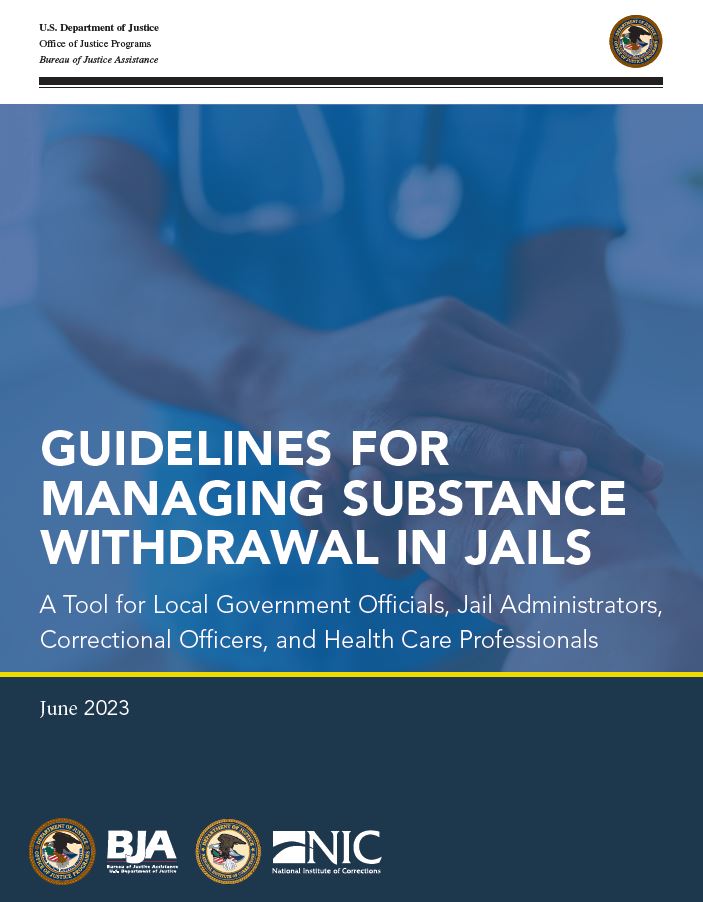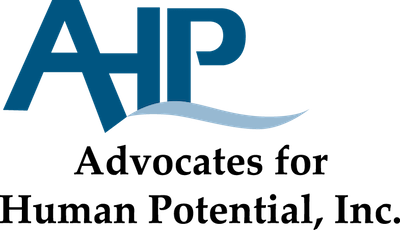BJA and NIC announce the publication of the Guidelines for Managing Substance Withdrawal in Jails: A Tool for Local Government Officials, Jail Administrators, Correctional Officers, and Health Care Professionals .
VIEW GUIDELINES
Perspectives on Substance Withdrawal Management: Corrections Leaders
Hear from professionals in the corrections field on the importance of managing substance withdrawal in jails and how the guidelines can help.
Perspectives on Substance Withdrawal Management: Clinicians
Hear from clinicians about the importance of managing substance withdrawal in jails and how the guidelines can assist health care professionals working in correctional settings.
The Guidelines for Managing Substance Withdrawal in Jails outlines the steps all jails (including detention, holding, and lockup facilities) should take to implement effective withdrawal management. It is designed to:
- Inform development of or revisions to existing withdrawal management policies and practices responsive to specific substances or combinations of substances.
- Stimulate development of policies and procedures reflecting the resources and capacity of jails.
-
Support needed conversations among local government officials,
sheriffs and jail administrators, hospital administrators,
correctional health care providers, and representatives from
community-based organizations on matters related to:
- Screening.
- The potential need to transfer to a higher level of care.
- Monitoring those who remain at the jail for signs and symptoms.
- Providing access to substance use disorder treatment (SUD).
- Managing reentry.
The following organizations and their board of directors endorse and support implementation of the Guidelines for Managing Substance Withdrawal in Jails :
American Correctional Association (ACA)
American Jail Association (AJA)
American Society of Addiction Medicine (ASAM)
Major County Sheriffs of America (MCSA)
National Association of Counties (NACo)
National Commission on Correctional Health Care (NCCHC)
National Sheriffs’ Association (NSA)
(but not the NSA Board of Directors)
Small & Rural Law Enforcement Executives Association(SRLEEA)
To request training and technical assistance (TTA), please complete the TTA form.
Email questions to: Guidelines@ahpnet.com.
Revisit the Jail Resources pages for new TTA implementation resources coming soon.
Project Partners
Bureau of Justice Assistance
The Bureau of Justice Assistance (BJA) provides leadership and services in grant administration and criminal justice policy development to support local, state, and tribal law enforcement in achieving safer communities. To learn more about BJA, visit www.bja.gov. BJA is part of the U.S. Department of Justice’s Office of Justice Programs.
National Institute of Corrections
The National Institute of Corrections (NIC) is the only federal agency with a legislative mandate (Public Law 93-41 5) to provide specialized services to federal, state, local, and tribal corrections from a national perspective. To learn more about NIC, visit www.nicic.gov. NIC is an agency within the Federal Bureau of Prisons.
Advocates for Human Potential, Inc.
Advocates for Human Potential, Inc. (AHP) improves health and human services systems of care and business operations to help organizations and individuals reach their full potential. To learn more about AHP, visit www.ahpnet.com. AHP serves as a training and technical assistance provider for the National COSSAP Jail-based Treatment and Community Corrections Program.
American Society of Addiction Medicine
The American Society of Addiction Medicine (ASAM) is a professional medical society representing over 7,000 physicians, clinicians, and associated professionals in the field of addiction medicine. To learn more about ASAM, visit www.asam.org.
National Commission on Correctional Health Care
The National Commission on Correctional Health Care’s (NCCHC) mission is to support and improve the quality of health care in jails, prisons, and juvenile facilities. To learn more about NCCHC, visit www.ncchc.org.








